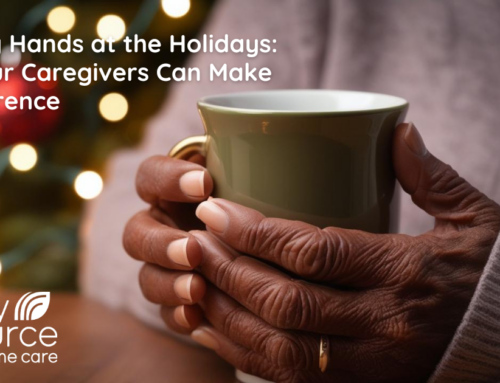The Pacific Northwest is known for its stunning scenery and vibrant seasons, but as the days grow shorter and the skies turn gray, many people—especially older adults—experience feelings of depression and loneliness. These emotional shifts aren’t uncommon, and they can be exacerbated by the weather, a condition often referred to as Seasonal Affective Disorder (SAD). If you or a loved one notices these changes, it’s important to understand the signs, address the symptoms, and consider how home care services might help combat Pacific Northwest seasonal depression.
How to Spot the Signs of Depression in Older Adults
Depression in seniors often manifests differently than in younger adults. While sadness can be a hallmark symptom, it’s not always the most noticeable sign. Look for the following: fatigue or low energy, difficulty staying awake, or a noticeable lack of energy; changes in appetite, such as weight loss or gain unrelated to intentional dieting; social withdrawal, including a lack of interest in social interactions or favorite activities; neglecting personal hygiene or household upkeep, with difficulty maintaining routines or a clean home; and memory issues, such as trouble focusing, concentrating, or recalling information. If these signs persist for two weeks or longer, it may be indicative of clinical depression, which can be worsened by Pacific Northwest seasonal depression.
What Is Clinical Depression?
Clinical depression, or major depressive disorder (MDD), is more than a fleeting feeling of sadness—it’s a medical condition that affects how people think, feel, and function. For seniors, it can lead to significant disruptions in daily life, making even simple tasks feel overwhelming. Left untreated, it can worsen physical health conditions or contribute to cognitive decline. When combined with the weather-related challenges of Pacific Northwest seasonal depression, its impact can feel even more profound.
What Causes Someone to Stop Cleaning Due to Depression?
Depression impacts motivation, energy levels, and decision-making. For someone with depression, the thought of cleaning can feel insurmountable. This isn’t laziness—it’s a reflection of how deeply depression affects day-to-day functioning. Clutter and disorganization can also compound feelings of shame or hopelessness, creating a cycle that feels difficult to break. If a loved one’s home is becoming unkempt, it might be a sign they need help, especially if seasonal depression is a contributing factor.
5 Things to Do If You Feel a Loss of Interest
When feelings of apathy or disinterest set in, try these steps to regain a sense of purpose and connection:
1) Get outside—natural light, even on cloudy days, can improve mood and energy, which is vital for combating Pacific Northwest seasonal depression.
2) Reach out to loved ones—talking to family or friends can help ease loneliness.
3) Set small goals—break tasks into manageable steps to avoid feeling overwhelmed.
4) Incorporate gentle exercise—activities like walking or stretching release endorphins.
5) Consider professional help—a caregiver or counselor can provide emotional and practical support.
If you’re unsure whether seasonal changes are affecting you, take a Seasonal Affective Disorder Test for more insight.
How Home Care Can Help
For families noticing these changes in their loved ones, home care can be a transformative solution. Professional caregivers provide companionship, help with household chores, and assist with daily routines, all while offering emotional support. For seniors, this ensures a clean, safe, and comforting environment that fosters well-being, even during challenging seasons. At Family Resource Home Care, we specialize in supporting seniors through life’s changes, including the emotional challenges brought on by Pacific Northwest seasonal depression. Our caregivers are trained to provide empathetic, personalized care that can make all the difference during the darker months. If you or a loved one are navigating depression or loneliness, we’re here to help. Reach out today to learn how our services can brighten the season.
Explore More: Visit Family Resource Home Care to learn more about our services and how we can help seniors thrive year-round.
Sources:
Signs of Depression in Older Adults
Clinical Depression: Symptoms, Types, and Treatments
What Causes Someone to Not Clean Their House?






